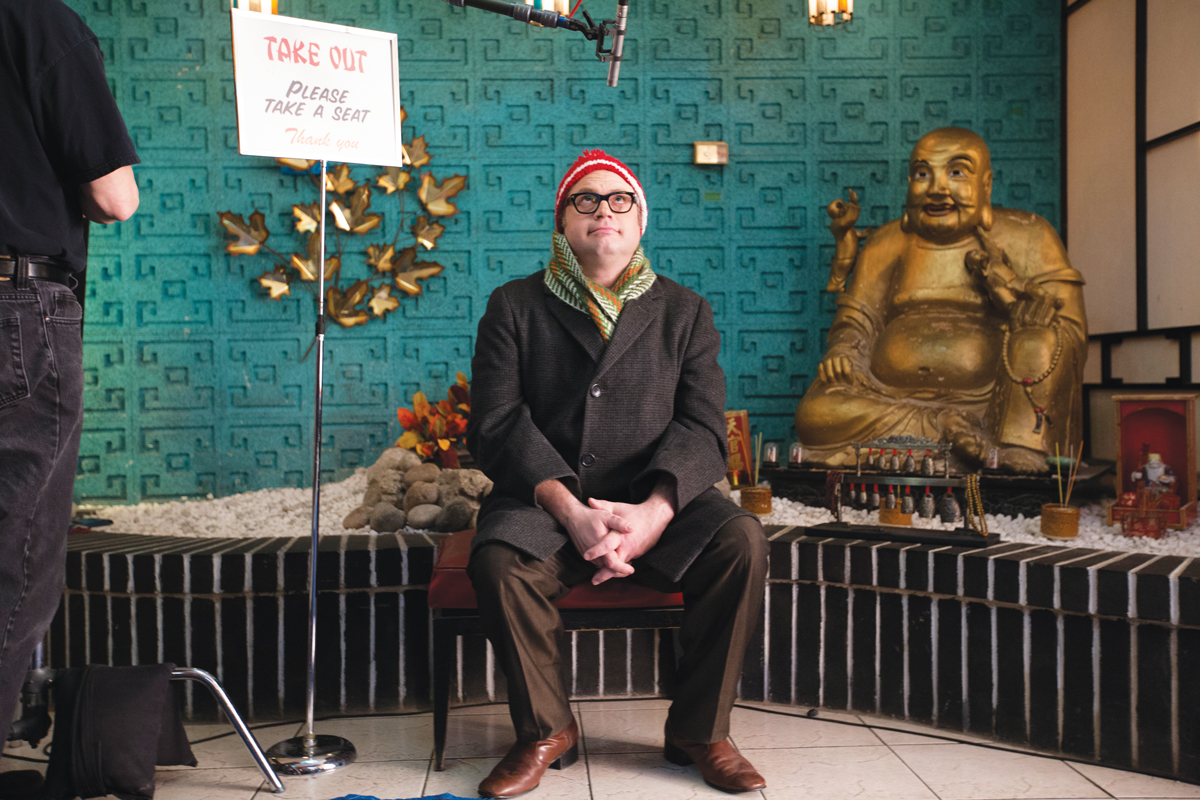
Photograph courtesy of the Atlanta Jewish Film Festival
When the Atlanta Jewish Film Festival launched in 2000, it unfolded over 10 days in four theaters. Today, the organization holds year-round events at area theaters and campuses, and its annual 23-day showcase attracts nearly 50,000 people, plus Hollywood hotshots like Lawrence Kasdan and Judd Hirsch, making it Atlanta’s largest film festival. With an international mix of old and new films that have a Jewish connection, the festival returns on January 24. Executive director Kenny Blank talks about this year’s highlights and why the celebration of cinema resonates.
What films are you particularly excited about this year?
There are too many to name. But we have a fantastic documentary on Hedy Lamarr, the famous actress. This film reveals that she was a brilliant scientist who invented sort of the forerunner to today’s Wi-Fi and, in many ways, a victim of the sexism of the time whose brilliance was never recognized. Every year, we bring classic films that have a Jewish connection and are celebrating a major anniversary back to the big screen. In the case of Schindler’s List, which is celebrating a 25th anniversary, we’re presenting it to a whole other generation. I’m going to look at my personal calendar to make sure at least one screening doesn’t conflict with my kids’ extracurricular activities.
How did AJFF, in relatively short time, become one of the largest Jewish film festivals in the world?
For our audience, a big part of this is just exposure to great storytelling on the big screen. Metro Atlanta has the 10th or 11th largest Jewish community in the United States. Some are observant, affiliated; some are not. Everybody loves the movies. This is the place where everyone, no matter how they connect with their Jewish identity, can come in and experience film together.
How are you expanding your audience?
About 25 percent of our audience identify as non-Jewish. It’s called the Atlanta Jewish Film Festival, but it’s really just a celebration of great international storytelling that has Jewish themes, different world cultures, and cinema. If we limit ourselves to films that are only going to cover certain subject matter and do it the same way every time, we’re only going to appeal to one audience. Where’s the intersection of Jewish life with the LGBTQ community, or a message that speaks to Jewish and Muslim relations, or the African-American community?
You don’t shy away from controversy.
We’re willing to look at the Jewish community, warts and all. We hold a mirror up to ourselves through this film festival, and one of the things that we have said is we are not going to self-censor. We’re here to create a safe harbor for conversation around sometimes controversial topics that people have a range of opinions on. To me, there’s nothing more quintessentially Jewish than that, about asking questions. There is a long historical tradition there, that Talmudic tradition of this is what the Jewish people do. We question all the time. This is about freedom of expression and ideas.
Nationally and internationally, we’re seeing a rise in extremism and even anti-Semitism. How can film challenge or change that trend?
You see polarized media now, and the whole fake news thing, and people not trusting the traditional sources of information, but I still think people love movies. They may not buy into everything they see on-screen. They may not always agree with the filmmaker, but there’s something about film where you can get people out of their comfort zones and their hard and fast positions on certain issues, or how they see other people from other walks of life, because it’s wrapped around this very personal storytelling.
How much work goes into putting the festival together?
This year, it will be a record. Close to 600 films—contemporary films that have been released within the past year—are prescreened by our selection committee to get to the 50 or so features and the couple dozen shorts that make up the programming. The staff sources most of the films from our call for entries and other Jewish festivals and major international festivals—Toronto, Venice, Berlin, Cannes, Tribeca, Sundance, and so forth. In the early days, our programming followed the lead of other festivals. Now, we’re sort of setting the pace and being the tastemakers and saying, “This is a film that’s important, that you should pay attention to. It has real value.” That means something now, when it comes under the banner of AJFF.
A version of this article originally appeared in our January 2018 issue.














